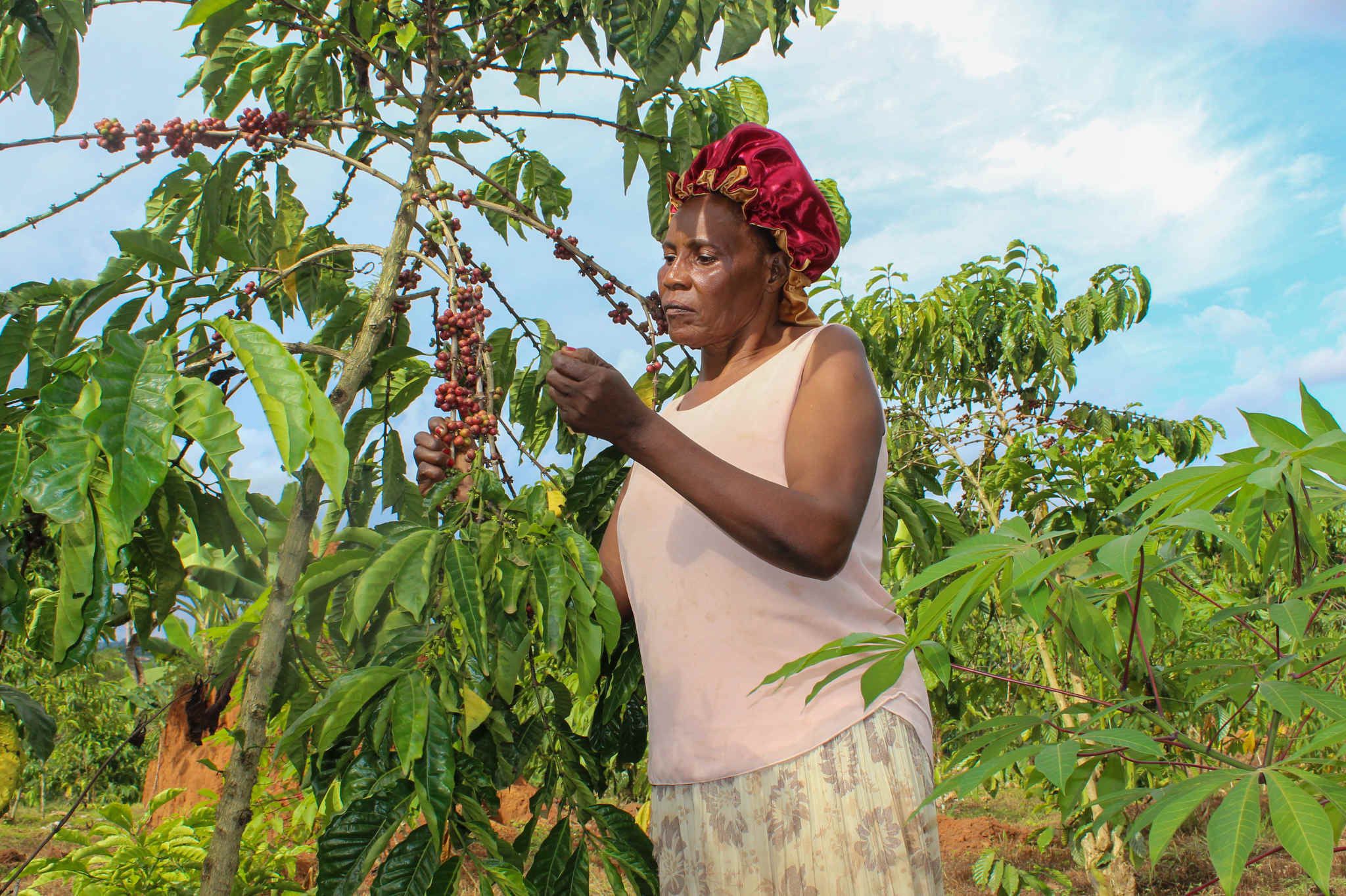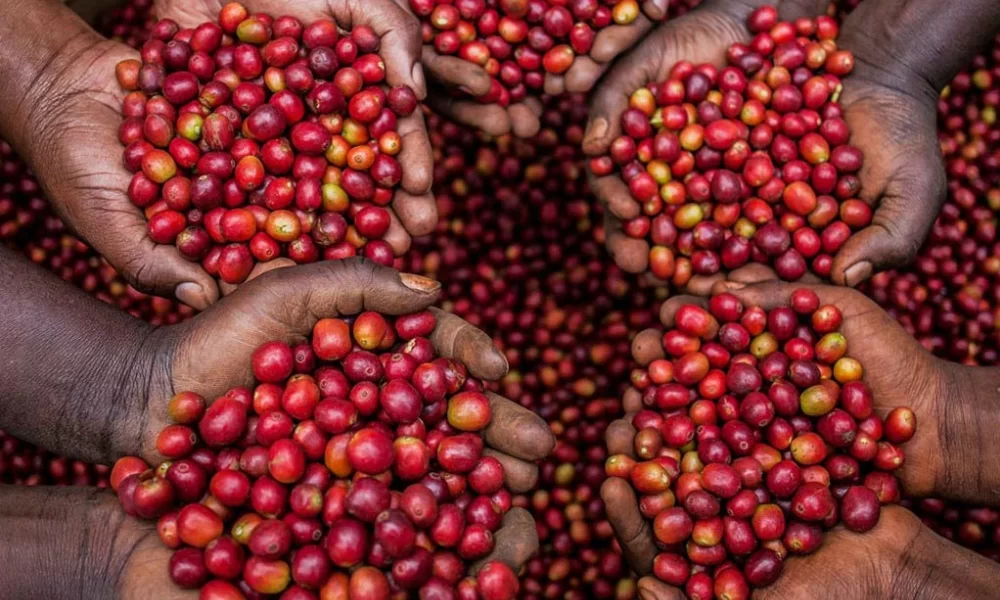Uganda’s coffee sector is in crisis, but it doesn’t have to be

Nakajubi Susan picks coffee berries from her farm in Maya village, Wakiso district. Photo: Nakisanze Segawa/Global Press Journal
The recent plunge in global coffee prices has sent shockwaves through Uganda’s coffee industry. From smallholder farmers in rural highlands to established exporting companies in Kampala, the fallout is being felt far and wide. For many, this is not just a market trend, it’s a painful reality.
Consider Guma, a small-scale coffee farmer in Kanungu. He is one of the 1.8 million smallholder farmers who collectively produce over 85% of Uganda’s coffee, often on plots ranging between 0.5 to 2.5 hectares.
But unlike large exporters who can hedge against market fluctuations, Guma remains dangerously exposed. Despite investing in agricultural inputs, he now faces a double blow: low yields and declining farmgate prices, with no financial cushion to fall back on.
The global outlook isn’t any more reassuring. Forecasts predict a surplus of 4.3 million bags in the 2025/26 coffee year, with total supply projected at 178.680 million bags, up from 174.399 million the year before.
Uganda is expected to contribute 6.9 million bags, with 5.8 million bags of Robusta and 1.1 million bags of Arabica, securing its position as the fourth-largest Robusta producer globally behind Vietnam, Brazil, and Indonesia.
Yet, this promising volume offers little consolation to farmers. The first half of 2025 initially saw stable to rising prices, only for a sharp downturn to hit in June. This was driven by oversupply especially of Robusta and shifting global dynamics.
Prices on both the London and New York Intercontinental Commodity Exchange (ICE) markets dropped, and Uganda’s local market followed suit, with devastating consequences for producers.
The numbers paint a grim picture. Robusta Kiboko prices dropped sharply, falling from Shs. 7,750 in March to just Shs. 5,250 by June 2025. Similarly, Robusta Fair Average Quality (FAQ) declined significantly from Shs. 15,250 to Shs. 10,500 over the same period. Even Arabica varieties were not spared, Parchment prices edged down from Shs. 15,000 to Shs. 14,500, while Drugar (clean) slipped from Shs. 14,500 to Shs. 14,000. Though the Arabica decline was less dramatic, the cumulative impact on farmers’ incomes has been unmistakably harsh.
Meanwhile, climate change continues to disrupt major coffee exporters like Brazil and Vietnam. For emerging producers like Uganda, this might seem like an opportunity but the window is short-lived. Other players adapt and rebound, often faster and with greater support systems.
Uganda’s coffee sector now finds itself caught in a classic “cobweb cycle” where price signals from past seasons influence planting decisions, leading to alternating cycles of surplus and shortage. This volatile loop keeps farmers like Guma trapped in uncertainty.
So, where do we go from here?

Rethinking Uganda’s coffee strategy
To navigate these turbulent waters, Uganda must rethink its coffee strategy. First, hoarding beans in the hope of better prices is a high-stakes gamble. A diversified and strategic sales approach, combined with value addition, is crucial. By processing coffee locally, farmers and exporters can tap into more lucrative markets and better withstand global price shocks.
Second, boosting domestic coffee consumption must become a priority. A stronger internal market reduces dependence on erratic international demand and supports long-term price stability.
Third, the use of formal contracts, including forward and futures contracts, between farmers and buyers can offer price predictability and market security protecting smallholders from sudden market dips.
And finally, financial literacy and market intelligence are essential. Those who understand how coffee financial markets function will always have an edge in this competitive landscape.
Uganda is at a critical juncture. With the right investments, policy frameworks, and private-public partnerships, the nation can not only weather current price storms but also position itself as a stronger player in the global coffee economy.
For farmers like Guma and thousands more, this is not just about survival; it’s about a chance at a more secure, prosperous future.




